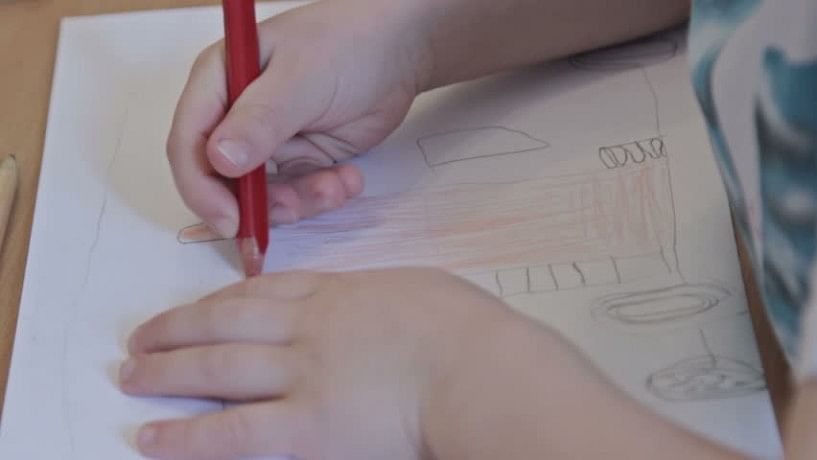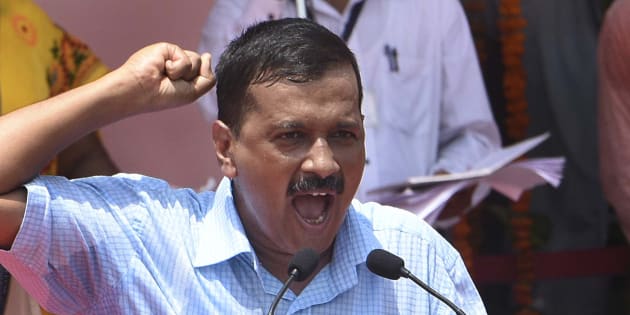The AAP government Wednesday scrapped 62 assessment criteria used by private unaided schools in nursery admissions, terming them ‘arbitrary’ and ‘discriminatory’. The cabinet approved the decision to strike down criteria including economic condition, parent’s profession or area of expertise, regularity in payment of school dues and lifestyle choices of parents like smoking, drinking and eating non-vegetarian food.
The criteria used by certain schools for nursery admissions were “shocking”, said Chief Minister Arvind Kejriwal while explaining the reason behind the government’s move.
“The Delhi High Court had said in an order that private school admissions cannot be micro-managed by the government… they should have the autonomy to decide the criteria for admission. But the high court had also said that the criteria and the admission process has to be fair, transparent and reasonable,” said Kejriwal.
“When we saw the criteria put up on the websites of some schools, we were quite shocked. Some schools said that those children whose parents smoke, drink or eat non-veg will not get admission. Others said if parents know how to paint or are trained in music, the child will get extra points. The criteria are so arbitrary and discriminatory,” added the chief minister.
The government has also decided to do away with all quotas in private school admissions except the 25 per cent reservation for students from economically weaker sections (EWS).
“Lots of private schools have made terrific reservations. One school has only 25 per cent open seats… 75 per cent of its seats are reserved. There are all kinds of quotas — management quota, sibling quota, this quota and that quota. The court did not allow any quotas. We are opening up 50 per cent more seats for the public. What is this management quota in schools and colleges? References from the chief minister, deputy chief minister, a judge, a station house officer, commissioner of police, income tax department… or they are sold. It is either influence or sale of seats,” said Kejriwal.
The chief minister said that no school will receive such ‘references’ from any member of his government.
The Directorate of Education had, in a circular on December 8, 2015, directed all private, unaided and recognised schools to develop and adopt criteria for admissions for the 75 per cent open seats to entry-level classes for 2016-17. The criteria, it stated, should be “clear, well defined, equitable, non-discriminatory, unambiguous and transparent.”
The process for nursery admissions in various schools started on January 1 and the last date for submitting admission forms is January 22.
The government examined various admission criteria used by private schools admitting children to entry-level classes and also cited reasons for terming them ‘unjust’.
Explaining why the criterion about parent’s economic condition was being done away with, the government said, “Parents seeking admission in a particular school are aware of the fee structure of the school and willing to pay the same. The fee structure of the school is same for everyone in the school. So, the economic condition does not matter.”
On scrapping the criterion about parents’ profession, the government stated, “Parent’s profession should not be a matter for the admission of tiny tots as all children have the same rights.”
Earlier this week, Transport Minister Gopal Rai had named 283 private schools which, he said, had “cheated’ the Delhi government. They had promised to let their buses be used for public transport during the odd-even operations in Delhi till January 15, but had not kept their pledge, said the minister.
However, Kejriwal clarified that the decision approved by the Cabinet Wednesday had nothing to do with that.
Special grounds and why they were removed
Parents with proficiency in music, sports etc This criterion is not just as it discriminates against other children seeking admission.
Parents’ education India is a developing country and literacy rate is not 100 per cent. This is not just towards children whose parents don’t have a good educational background.
Regularity in payment of school dues This is illogical. Parents seeking admission of their ward cannot be judged on this criterion.
Both parents are working Equal opportunity should be given to non-working parent/single working parent/both parents working.
Status of child This is illogical as one can’t assign status to tiny tots.
First cousin of a student This will create a homogeneous group in a class/school which is not conducive for overall development of child.
If candidate has proficiency in music and sports It is ridiculous to assign points for proficiency in music and sport to a child between the age of 3 to 6 years.
Mother’s qualification Equal opportunities of admission should be given to children irrespective of their mother’s qualification.
Attitudes and values It is undefined and likely to be misused.
Old parents This is illogical and discriminatory.
Scholar students This is illogical. No scholastic aptitude can be tested at entry-level classes.
Permanent resident of Delhi by birth This is illegal and a violation of the fundamental rights of a citizen.
Similar cultural ethos This is undefined.
Joint Family This criterion is not practically determinable and as such there is no basis of connecting it to the admission process.
Special quality This is undefined and likely to be misused.
Language skills It is illogical to assign points to this criterion. Small children should be on equal footing in terms of their quality as an entry-level class is the threshold of learning.
Economic condition The fee structure of the school is same for everyone, so the economic condition does not matter.
Parent’s reason for approaching the school This is undefined and discriminatory.












